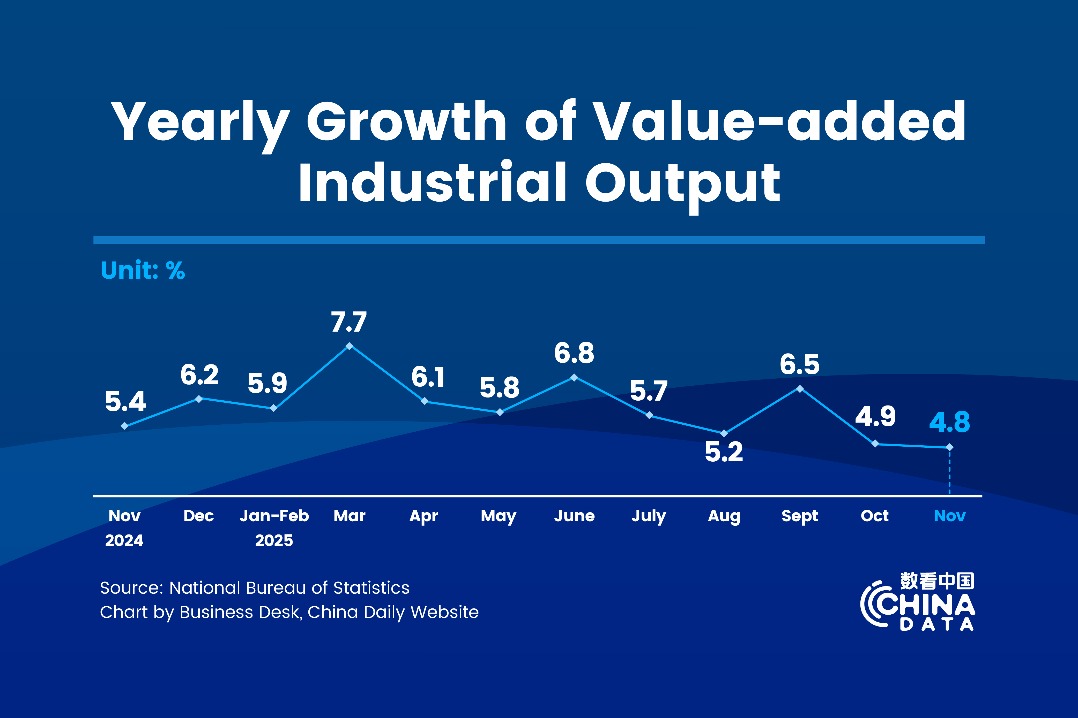Executives say tariffs will boost prices


Jennifer Cleary, vice-president of Regulatory Affairs at the Association of Home Appliance Manufacturers, said at another hearing that building new supply chains isn't an easy task.
"For many of the products in our scope it could take over five years to select new suppliers, if it is even possible to do so," she said in testimony. "This is due to various compliance and safety considerations among other factors."
Jason Bonfig, the chief merchandising officer at Best Buy, a US retailer of consumer electronics and manufacturer of private label electronics, said China accounts for the "majority share" of consumer electronics sold in the US last year.
He sought exemption from additional tariffs for six categories of consumer electronics, including smartphones, laptop computers and tablets, computer monitors, smart watches and gaming consoles.
Manufacturing of these products is relatively complex to move and requires significant time and expense as well, Bonfig said.
"In many leading products, there is no practical substitute made outside of China in the near term," he added.
The choice is further constrained by the lack of key resources, port capacity and other infrastructure in alternative countries, he said in the testimony.
"It will not result in any additional benefit for the US in the context of the Section 301 trade action and will only serve to maximize the pain on the US consumer, workers, businesses, and the economy at large with minimal impact to China," Bonfig said.
While witnesses have given the US administration an earful about the pain tariffs could inflict on US businesses and consumers, several analysts with Washington think tanks said they may not get what they want.
"President Trump has made his liking for tariffs crystal clear as a weapon in trade and other conflicts," Douglas H. Paal, vice-president of the Asia Program at the Carnegie Endowment for International Peace, told China Daily. "It discourages hope."
Simon Lester, associate director of Herbert A. Stiefel Center for Trade Policy Studies at the Cato Institute, another think tank in Washington, also said the president has made his support for tariffs very clear, and people don't see much hope that many of the tariffs can be avoided.
Gary Hufbauer, a senior fellow and trade expert at the Peterson Institute for International Economics in Washington, said the president sees political advantage in playing the role of "tough deal maker" and he sees no political advantage in acceding to business pleas, no matter how strong.
However, there is risk of a global recession if the threat of a new round of tariffs on Chinese imports is followed through, he said.
"For sure, that would slow the US economy and hurt the stock market. Those are the reasons he (the president) is very unlikely to follow through. But criticisms from business firms will not hurt his re-election bid," Hufbauer told China Daily.
On June 18, the second day into the tariffs hearings, Trump tweeted that he would meet Chinese President Xi Jinping on the sidelines of the upcoming G20 Leaders' Summit in Osaka, Japan, next week. The two sides are expected to discuss in-depth bilateral ties and issues of common concern, according to a statement from the Chinese Foreign Ministry.
Several participants at the hearings expressed cautious optimism about the outcome from the summit.
"I hope President Trump and President Xi could find some common grounds. And I hope they can find a way not only to not impose new tariffs, but also remove the imposed tariffs that have been in effect," Bryan Riley, director of National Taxpayers Union Foundation's Free Trade Initiative, said on June 21. "That's the best scenario."
David F. Snyder, vice-president of International Policy of American Property Casualty Insurance Association, also said that for the G20 negotiation, "we hope what comes out is an improving relation between our two countries, the ability to work together in kinds of issues".
Dong Leshuo and Zhang Jing in Washington contributed to this story.




































